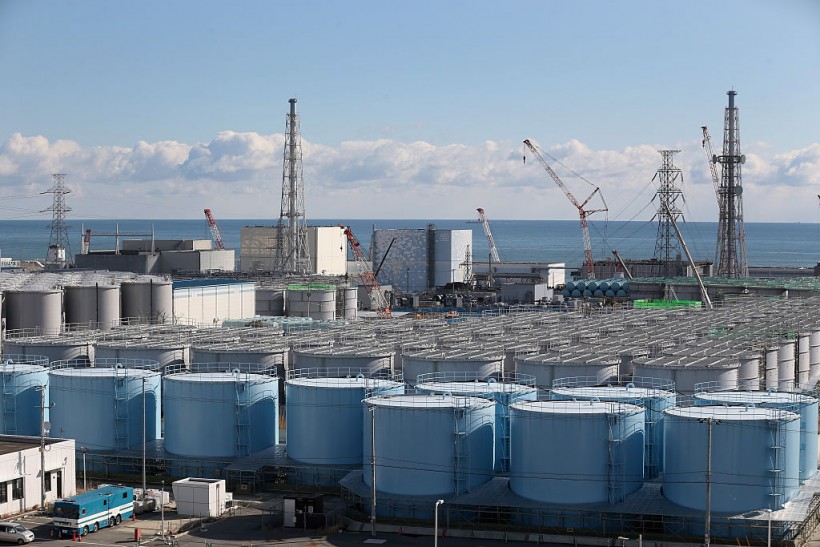A recent leak of radioactive water from Japan's Fukushima Daiichi nuclear power plant has drawn sharp criticism from Chinese officials, who lambasted both the plant's operator and the Japanese government for what they called "lacking and ineffective" responses (via South China Morning Post).
The incident, which occurred on Wednesday, saw approximately 5,500 liters of contaminated water leak from the tsunami-damaged plant. According to reports, the leak stemmed from a valve left open during routine cleaning work.

OKUMA, JAPAN - FEBRUARY 25: A general view of radiation-contaminated water tanks and the damaged reactors at Fukushima Daiichi nuclear power plant. Five years on, the decontamination and decommissioning process at the Tokyo Electric Power Co.'s embattled Fukushima Daiichi nuclear power plant continues on February 25, 2016, in Okuma, Japan. March 11, 2016, marks the fifth anniversary of the magnitude 9.0 earthquake and tsunami which claimed the lives of 15,894, and the subsequent damage to the reactors at TEPCO's Fukushima Daiichi Nuclear Power Plant causing the nuclear disaster which still forces 99,750 people to live as evacuees away from contaminated areas.
Chinese Official Blasts Fukushima Plant Operators
In a statement, a spokesman for China's embassy in Japan accused Tokyo Electric Power Company (Tepco), the operator of the Fukushima plant, of internal mismanagement, stating, "Japan's repeated accidents in the process of treating Fukushima nuclear-contaminated water have fully exposed the chaos and disorder of Tepco's internal management."
The embassy spokesman also criticized the Japanese government's oversight measures, describing them as inadequate and ineffective. "The Japanese government's supervision measures are lacking and ineffective, which once again proves that the nuclear-contaminated water treatment equipment lacks long-term reliability," the spokesman said.
This latest incident has reignited concerns over Japan's handling of the aftermath of the 2011 earthquake and tsunami, which led to multiple meltdowns at the Fukushima Daiichi plant and the release of radioactive material into the environment.
Read Also: Chinese Scientist Reveals World's First AI Child 'Little Girl' in Beijing Showcase
Japan's Controversial Radioactive Water Release
Japan has been grappling with the challenge of managing the vast amounts of contaminated water generated in the process of cooling the reactors. In response, the country announced plans to discharge treated wastewater from the plant into the Pacific Ocean, a decision that has sparked international dispute.
China has been among the most vocal critics of Japan's plan, expressing concerns about the potential environmental and health implications of releasing the wastewater into the sea.
The Chinese embassy spokesman reiterated Beijing's opposition to the discharge, stating, "The discharge of the Fukushima nuclear-contaminated water into the sea is related to the health of all mankind, the global marine environment, and international public interests."
The ongoing tensions between China and Japan over the Fukushima issue have escalated into a geopolitical dispute, with China imposing a ban on seafood imports from Japan last August in response to Tokyo's decision.
Despite assurances from Tepco that there is no immediate risk to the public and that the surrounding environment has not been significantly affected by the recent leak, the incident has raised questions about the long-term reliability of the plant's infrastructure.
The International Atomic Energy Agency (IAEA) and Japan's nuclear regulator are currently conducting investigations into the incident, underscoring the importance of international oversight in nuclear safety matters.
According to Tepco, the leaked water is a combination of contaminated water from the plant's absorption system and filtered water used for cleaning. It is estimated to have approximately 0.022 Terabecquerels (TBq) of radioactive substances.
Stay posted here at Tech Times.
Related Article: Japan's Fukushima Nuclear Plant Faces Tougher Challenge Beyond Water Release: Removing Melted Nuclear Fuel










